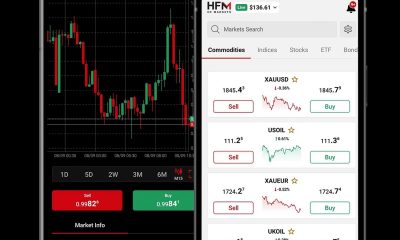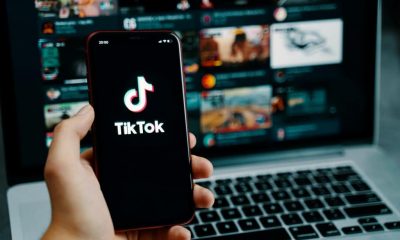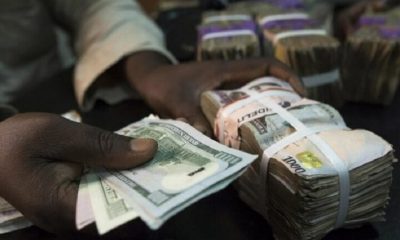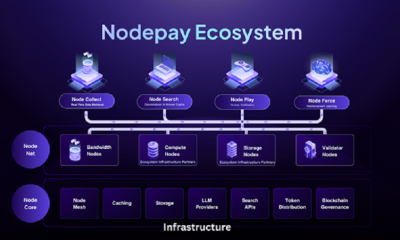Economy
In-depth Trading.com Review Compiled by Traders Union Analysts
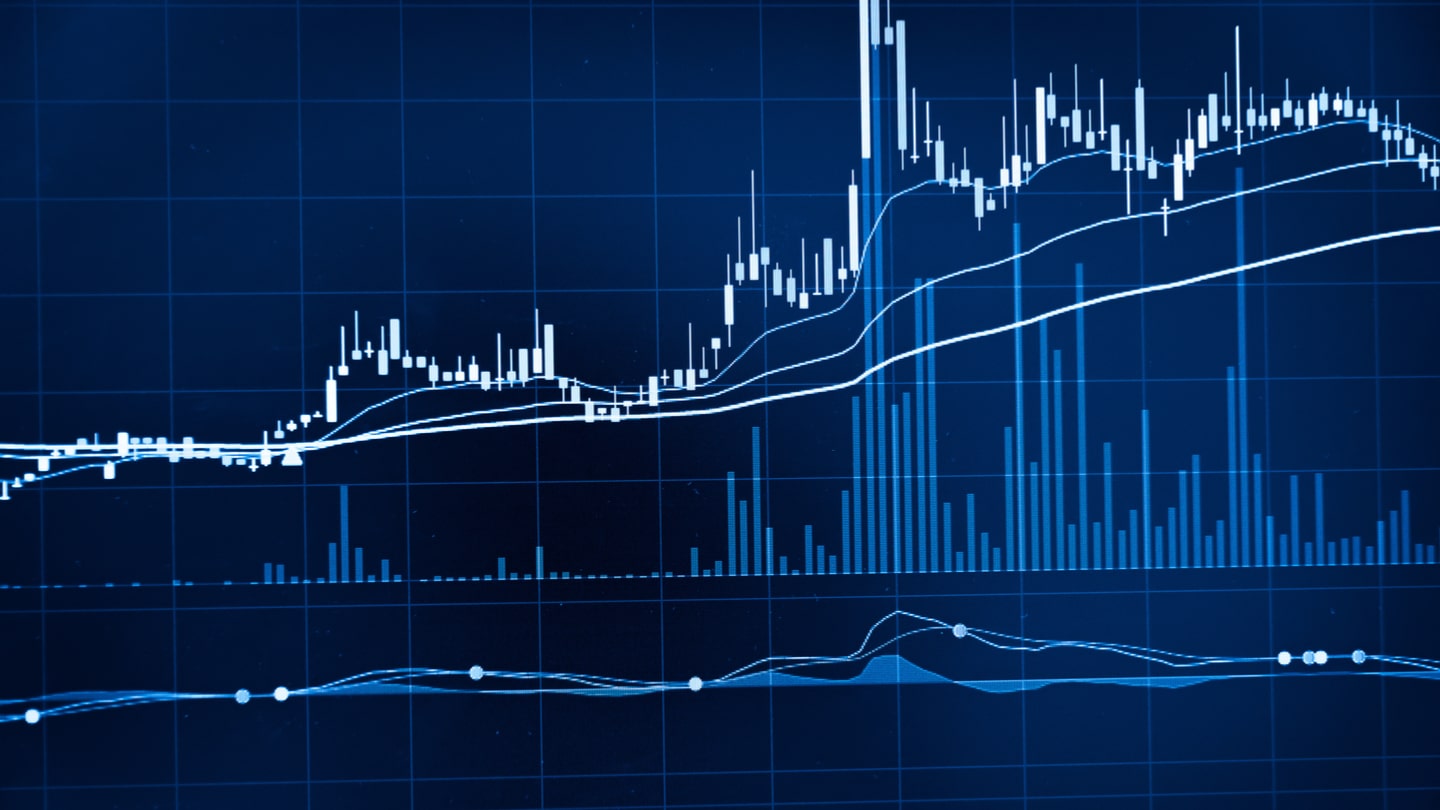
In the dynamic world of online trading, selecting a reliable and proficient broker is critical. Hence, the importance of comprehensive broker reviews cannot be understated. With this Trading.com review, we aim to shed light on one of the key players in the Forex trading world.
Traders Union compiled the Trading.com review. It will delve into the diverse aspects of Trading.com. From its offerings and trading conditions to the potential drawbacks, our review will guide you through the myriad details of this UK-based broker.
What is Trading.com?
According to Traders Union experts, Trading.com, formerly known as XMUK, has carved a significant niche in the trading market. The full name, Trading Point, was transitioned to the more streamlined Trading.com in 2019. This London-based firm is regulated by the Financial Conduct Authority (FCA) under registration number 705428.
Trading.com allows traders to invest in six asset classes: currency pairs, metals, and CFDs on stocks, stock indices, commodity futures, and energy resources. Over 1,250 assets can be traded, offering significant diversity to traders worldwide.
Advantages and disadvantages of Trading.com
As identified by TU experts, Trading.com exhibits an array of advantageous and disadvantageous features.
Advantages:
- Favorable trading conditions with average spreads on significant pairs standing at 0.6 pips.
- The absence of commissions enhances the profit potential.
- Moderate initial deposit requirements, with trading commencing at a minimum deposit of $5.
- The renowned MetaTrader 5 platform is used for desktop and mobile trading.
- A reliable regulatory framework under the FCA.
Disadvantages:
- Limited accessibility as the broker only provides services to UK citizens.
- The absence of PAMM and MAM accounts for passive investing.
- Lack of bonuses and training programs.
Analysis of the main features of the Forex broker
The overall score, as evaluated by TU experts, is a modest 2.06. The execution of orders scored 1.85, while the variety of investment instruments is marked at 1.91. The speed of withdrawal processes has been rated at 2.21, and customer support stands at 1.69. The various instruments and the trading platform earn higher scores, at 2.43 and 2.27, respectively.
Trading conditions for Trading.com users
The trading conditions at Trading.com, as per TU experts, are as follows:
- Trading platforms: MetaTrader 5 for desktop, mobile, and WebTrader.
- Account types: Ultra-Low Standard, Ultra-Low Micro.
- Account currencies: EUR, USD, GBP, CHF, AUD, PLN, HUF.
- Minimum deposit: $5.
- Leverage: Ranges from 1:1 up to 1:30, depending on the instrument.
- Spreads: Average spread at 0.6 pips.
- Instruments: Many instruments, including 57 currency pairs, and 1200+ CFDs on shares, commodities, indices, metals, and energy resources.
Trading.com trading Instruments compared to other brokers
TU experts compared the trading instruments of Trading.com broker to other broker’s trading instruments.
- RoboForex: Much like Trading.com, RoboForex also provides various trading options. However, the specifics of trading conditions and instrument variety can differ, thus requiring careful analysis from prospective traders.
- Pocket Option: Pocket Option’s trading offerings resemble those of Trading.com. Nevertheless, differences in trading conditions, instrument availability, and other features mandate an in-depth examination by interested traders.
- Tickmill: Tickmill, similar to Trading.com, provides diverse trading options. The nuances of trading conditions, instrument variety, and unique features may vary, necessitating a thorough evaluation by potential traders.
- EXNESS Group: EXNESS Group, while offering a broad spectrum of trading options like Trading.com, may differ in aspects like trading conditions, available instruments, and other unique features. Hence, a detailed comparison is advised for potential traders.
- AMarkets: Offering a diverse range of trading options akin to Trading.com, AMarkets might still differ in trading conditions, instrument offerings, and other specific features. Therefore, potential traders should meticulously examine these factors before making a decision.
Additionally, TU experts have also published a thorough FXPRIMUS review on their official website for traders who are interested,
Conclusion
While Trading.com presents a strong case for a reliable trading platform, weighing its benefits against its limitations is essential. As always, we recommend traders to visit the Traders Union’s official website for more insightful reviews and guidance on choosing the best-suited broker.
Economy
FG Unveils Industrial Policy to Raise Manufacturing Contribution to 25%
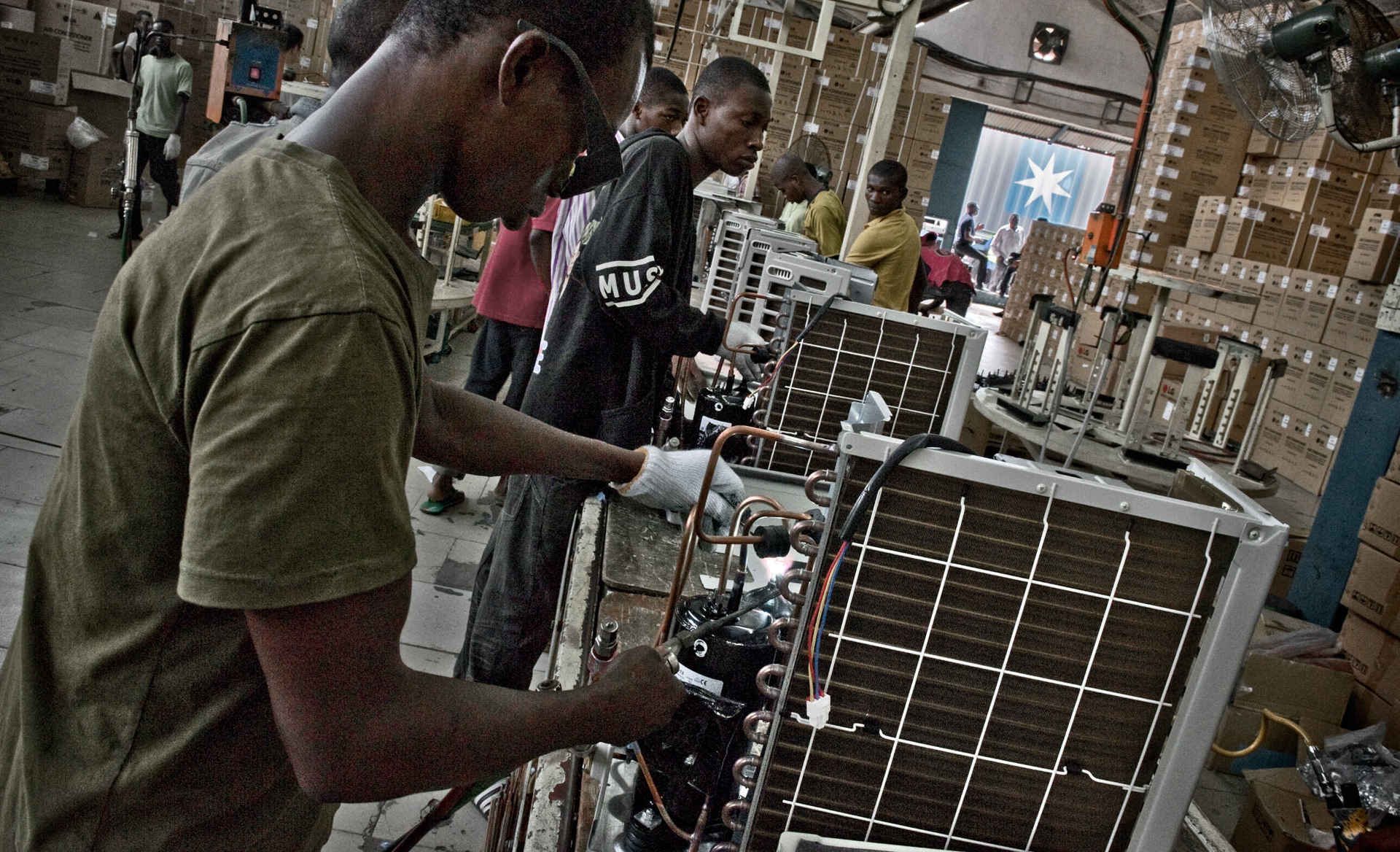
By Adedapo Adesanya
The federal government plans to boost the manufacturing sector’s contribution to the Nigerian economy to 15 per cent by 2030 and 25 per cent by 2035, from its current 8.2 per cent.
This was revealed in the newly launched Nigeria Industrial Policy (NIP), which was unveiled by the Federal Ministry of Industry, Trade and Investment (FMITI).
According to data, the sector employs 13 million Nigerians, mainly in food processing, cement production, textiles, pharmaceuticals, and the automotive industry.
The FG stated that the aim of NIP frameworks is “to drive economic growth, reduce dependence on oil exports, and promote sustainable development” and contribute to achieving Nigeria’s aspiration of attaining the $1 trillion economy by 2030.
The government said the plan would “accelerate Nigeria’s industrial transformation by leveraging its natural and human capital to promote inclusive, sustainable, and competitive manufacturing, deepen economic diversification, and generate mass employment through innovation, infrastructure development, investment, and export.”
It explained that the policy direction of its NIP is anchored on the development of four sectors, namely metals and solid minerals, oil and gas, construction, and manufacturing.
Over the past decade, the agro-allied industry has contributed an average of 25 per cent (27 per cent rebased) to Nigeria’s real GDP and currently accounts for 35 per cent of total employment. It serves as a primary source of raw materials for key manufacturing sectors, including food processing, leather goods, and textiles, reinforcing its pivotal role in driving industrial linkages and inclusive economic development.
The report noted, however, that the industry faces challenges such as limited mechanisation and outdated farming techniques, post-harvest losses, and insecurity.
The government assured that relevant legal and institutional frameworks are in place to address key challenges such as inadequate power supply, low access to finance, and competition from cheap imported products, limiting the performance of the sector.
The Minister of State, FMITI, Mr John Owan Enoh, described the NIP as “a comprehensive framework that reaffirms our national resolve to diversify the economy, create inclusive prosperity, and secure Nigeria’s rightful place as a leading industrial hub in Africa and the wider global economy.”
The government said that each of the four sectors comprises multiple sub-sectors that offer strategic opportunities for industrial development.
“These sectors have been prioritised due to strong comparative advantages, potential to generate large-scale employment, and deepen local value addition and expand exports.
“The future outlook for the industry is bright with abundant natural resources, massive investment in the development of Special Economic Zones (SEZs), the growing market size, and participation of Nigeria in AfCFTA and ECOWAS Trade Liberalisation Scheme (ETLS)”, the report added.
Economy
Financial Inclusion Drives Economic Growth—Smartcash CEO
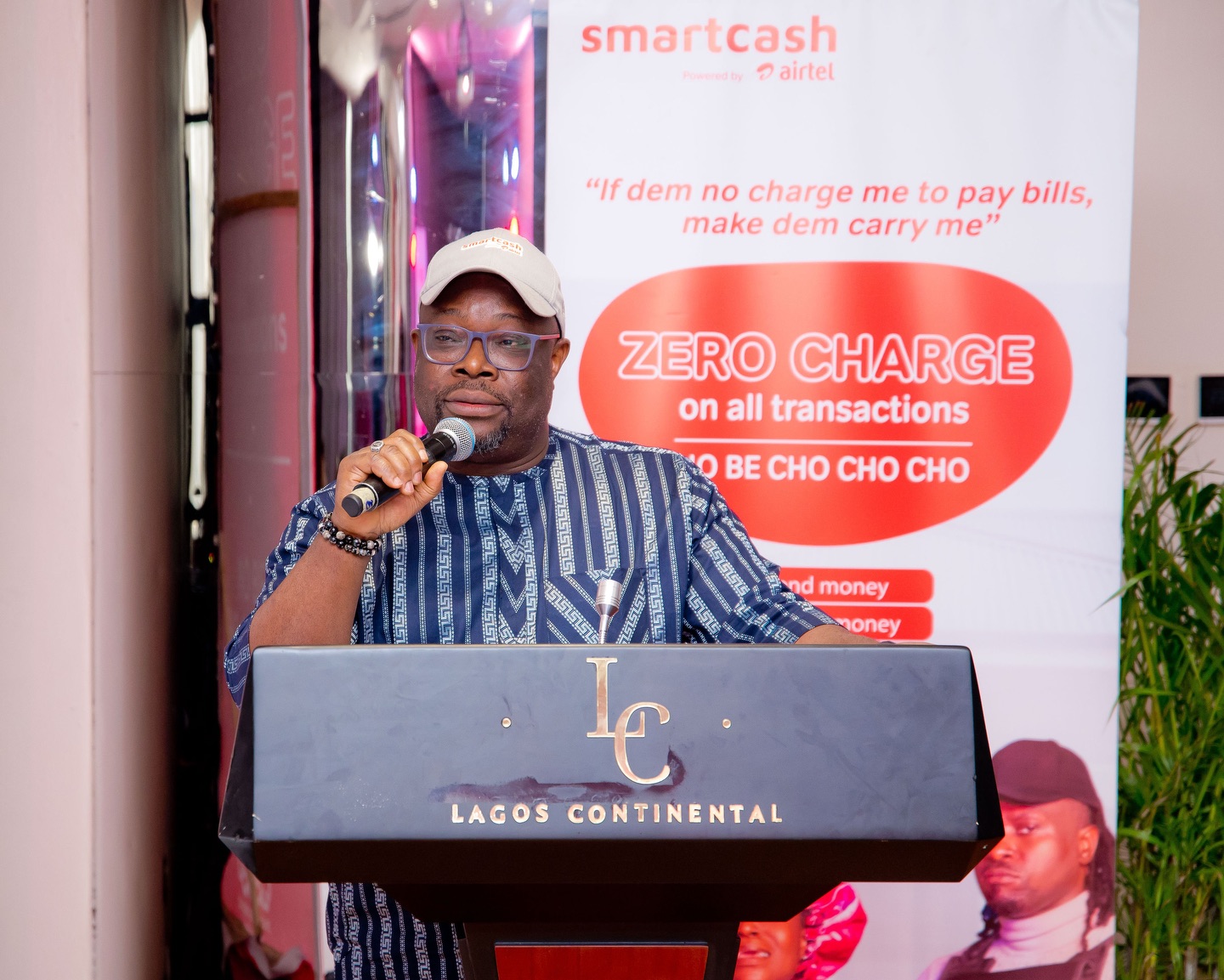
By Dipo Olowookere
The chief executive of Smartcash Payment Service Bank (PSB), Mr Ayotunde Kuponiyi, has stressed the importance of financial inclusion to any nation’s economy.
Speaking with journalists in Lagos on Tuesday, he said the country will always experience economic growth when the majority of its citizens are financially included.
According to him, this is why the Central Bank of Nigeria (CBN) has intensified its efforts to drive financial inclusion in the country to about 80 per cent.
“Financial inclusion is important because when 80 per cent of your population is included financially, it then ensures growth in the economy,” he said at the unveiling of the nationwide marketing campaign of Smartcash titled No Be Cho Cho Cho.
“We have about 40 million or 50 million Small and Medium Enterprises (SMEs) in Nigeria, and a number of them don’t have bank accounts, but when they are included financially, they have access to finance, borrowing, and then grow their income.
“As the industry grows, they employ more hands (job creation), and when this happens, the government earns more revenue from taxes paid by the employed persons, which the government then uses to improve the standard of living of the citizens. Infrastructure will also be provided by the government. This is why financial inclusion is extremely important,” Mr Kuponiyi stated.
Commenting on the new campaign, the Smartcash boss said it reflects a broader philosophy of accountability in digital finance, with the zero-charge model, which eliminates fees on transfers and bill payments.
“Through our flagship zero-charge service, we promise no fees on P2P transfers or bill payments. Furthermore, our savings account offers 15 per cent per annum compounded interest, paid daily without penalties. Unlike conventional banks, we charge you nothing, ensuring your money truly works for you,” he averred, stressing that the zero-fee does not apply to the stamp duty charged by the federal government on transactions above N10,000.
He stated that the initiative centres on the three pillars of reliability, transparency and demonstrable service delivery and addresses what the company describes as a widening trust gap in Nigeria’s digital payments market.
Mr Kuponiyi also revealed that beyond consumer banking, the platform is also expanding its footprint through a nationwide network of agents that facilitate transactions and financial services in underserved communities.
Smartcash is the digital financial services platform of Airtel Nigeria, which is a subsidiary of Africa Plc, operating across 14 countries.
Economy
Oil at $85 Could Boost Nigeria’s External Balance Account—Bloomberg
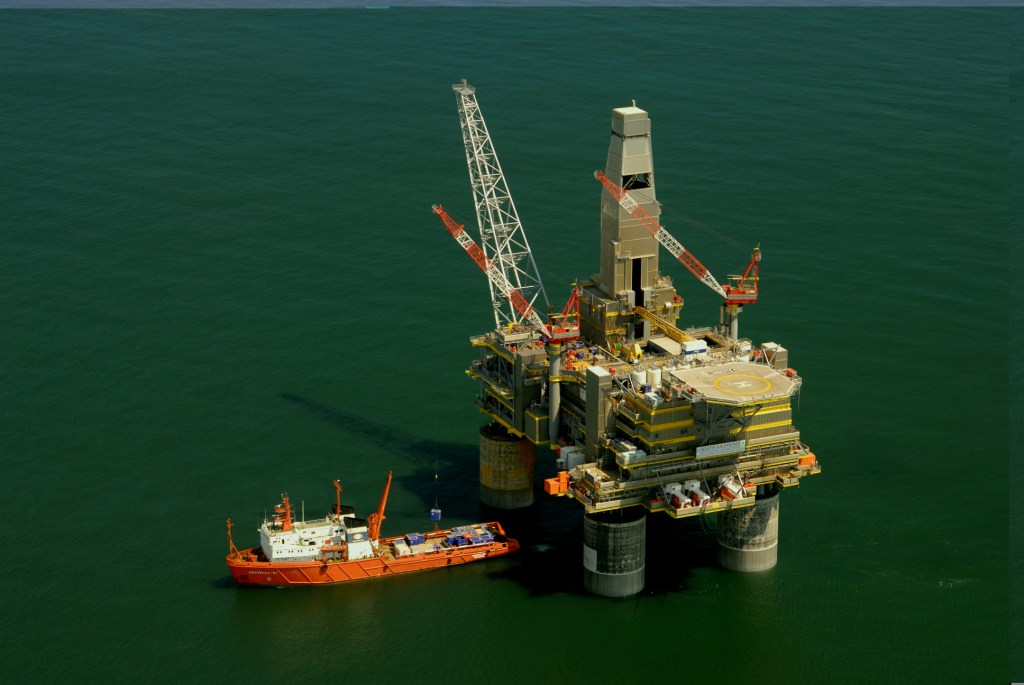
By Adedapo Adesanya
Nigeria has been identified as one of the winners of an oil windfall following the US and Israel’s war on Iran.
According to Bloomberg Economics, the rise in prices will improve the current account balance of just three sub-Saharan African economies.
Bloomberg Economics’ Ms Yvonne Mhango wrote in a report on Thursday that if oil stays at about $85 a barrel, Angola, Nigeria and Ghana will see their current account balance improve, while the Democratic Republic of Congo, South Africa and Kenya will be among the worst-hit.
“For most African economies, higher oil prices mean weaker currencies and renewed inflationary pressure, which could put rate hikes back on the table,” she said.
According to the analyst, Nigeria, which is Africa’s largest oil producer, will not only gain from crude sales but from fuel exports.
Bloomberg Economics data showed that Nigeria’s current account balance could benefit by as much as 2.3 per cent of gross domestic product (GDP), second only to Angola’s 3.3 per cent and Ghana’s 0.2 per cent.
Already, the 650,000-barrel-a-day Dangote oil refinery has raised the prospect of sending more product to Europe if the price is right.
Dangote is offering up to 44,000 metric tons of jet fuel for loading March 20-22, as well as at least 40,000 tons of gasoil with a maximum sulphur content of 50 parts per million for loading March 15-30.
However, countries like Africa’s largest economy – South Africa – may face challenges if India and Oman, two of its biggest fuel suppliers, cut down on exports. It may see a -1.0 per cent hit to its current account balance.
South African consumers are bracing for fuel costs to increase in April, according to Central Energy Fund data, while traders moved to price in a chance of an interest-rate hike later this month.
Following US and Israeli strikes on Iran over the weekend and retaliatory moves by the Islamic Republic, global crude prices have adjusted sharply.
The Strait of Hormuz, a narrow shipping lane between Iran and Oman, through which roughly a fifth of global oil supply normally passes, has been blocked completely by Iran.
As of press time, Brent crude, which Nigeria prices its crudes is trading up at 2.3 per cent at $83.23. Nigerian crude grades, Brass River and Qua Iboe, are selling at $87 per barrel.
-

 Feature/OPED6 years ago
Feature/OPED6 years agoDavos was Different this year
-
Travel/Tourism10 years ago
Lagos Seals Western Lodge Hotel In Ikorodu
-

 Showbiz3 years ago
Showbiz3 years agoEstranged Lover Releases Videos of Empress Njamah Bathing
-

 Banking8 years ago
Banking8 years agoSort Codes of GTBank Branches in Nigeria
-

 Economy3 years ago
Economy3 years agoSubsidy Removal: CNG at N130 Per Litre Cheaper Than Petrol—IPMAN
-

 Banking3 years ago
Banking3 years agoSort Codes of UBA Branches in Nigeria
-

 Banking3 years ago
Banking3 years agoFirst Bank Announces Planned Downtime
-

 Sports3 years ago
Sports3 years agoHighest Paid Nigerian Footballer – How Much Do Nigerian Footballers Earn


